Table of Contents
We’re all together — but no one’s really with each other. Sound familiar?

Dinner tables now glow with screens instead of conversations. Children scroll through reels while parents reply to emails. In most homes, screens have replaced family time — quietly and completely.
But what if you didn’t have to choose between digital life and quality time?
What if your child’s screen time could actually build bonds, spark learning, and bring you closer?
In this guide, we’ll show you how to transform screen time kids into learning time with practical, fun strategies. Let’s take the guilt out of gadgets and bring joy back into screens.
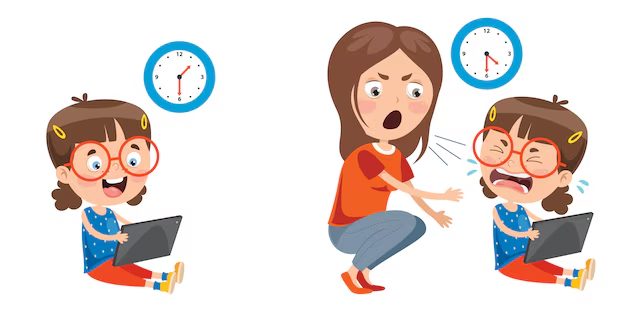
The Problem: Screen Time Is Taking Over Childhood
Post-pandemic, kids’ screen time has skyrocketed. According to Common Sense Media, children aged 8–12 now average over 5 hours of daily screen time — and teens cross 7+ hours.
But the real damage isn’t just time — it’s lost connection.
- Kids zone out.
- Parents feel guilty.
- Conversations fade.
Too often, screen time kids become emotionally distant, with rising focus issues, speech delays, and poor sleep cycles.
“Too much screen time delays emotional development and bonding in young children.”
— Dr. Meenal Kapoor, Child Psychologist
Why Replacing Screen Time With Family Time Matters

Children don’t just need food and shelter — they need your attention. And not just during school projects or mealtime nags.
Shared experiences — laughing at the same joke, solving puzzles together, or cooking a messy recipe — shape their sense of trust and belonging.
The problem? Screens make everyone physically present but emotionally absent.
The solution? Smarter screens. Shared experiences.
Screen Time Is Stealing Your Child — Here’s How to Get Them Back
6 Smarter Screen Strategies for Screen Time Kids
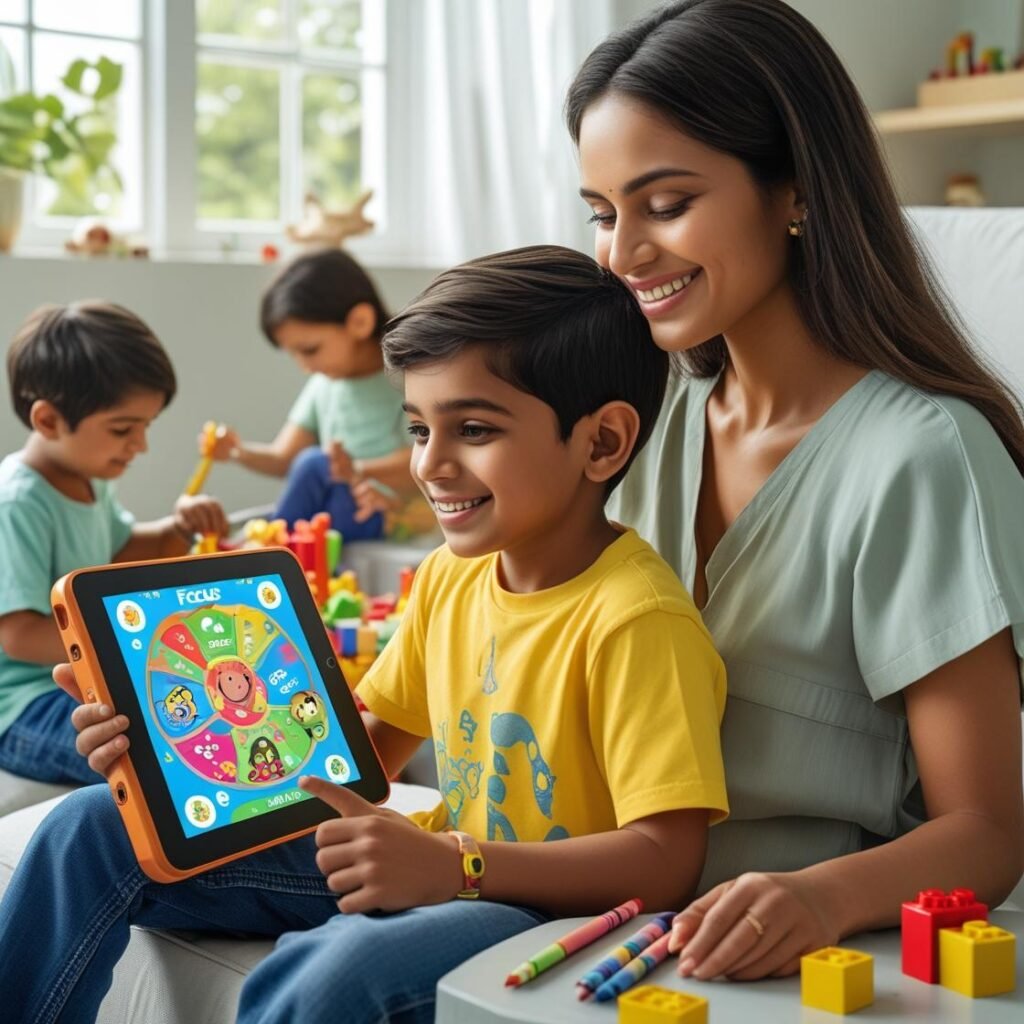
- Co-View What Your Screen Time Kids Watch
Instead of letting kids watch alone, watch with them.
Ask questions, pause, and react, turn passive viewing into conversation.
Try short documentaries, nature shows, or animated learning videos.
Or even better play educational games together like Focus Fun!
When you co-watch or co-play, screen time kids become more responsive, curious, and talkative.
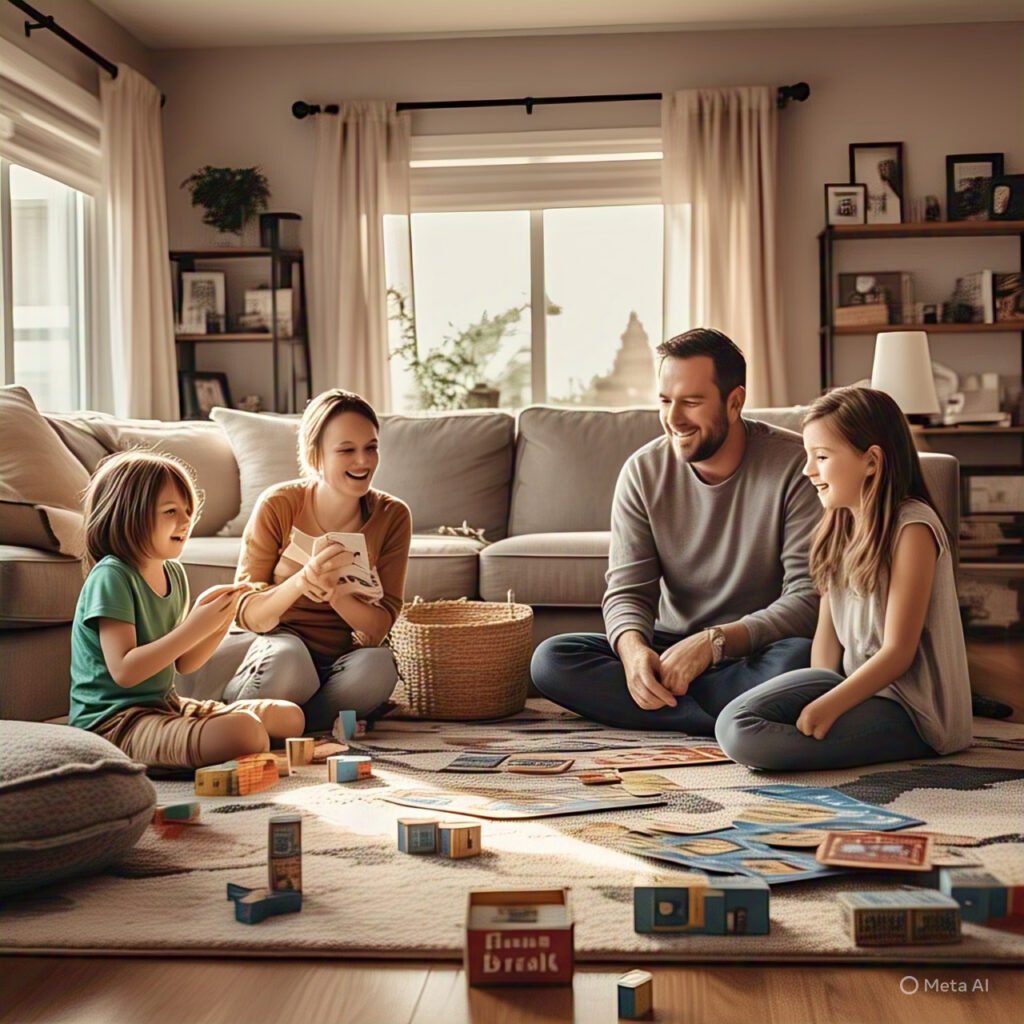
2. Set a Daily “Tech-Free Hour” for Bonding
Choose one golden hour each day — no screens allowed.
This could be:*
*Dinner time
*Bedtime story hour
*8–9 PM family game hour
Let kids know it’s sacred family time. No negotiations.
You’ll be surprised how much they start looking forward to it — especially when it’s consistent.
Even for screen time kids, routine creates security.
FocusFun the Hero of Your Child’s Screen Time
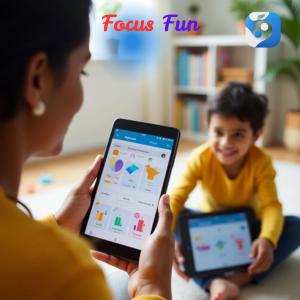
You don’t need to ban screens. Just bend them in your favor.
Focus Fun App turn mindless scrolling into mindful gaming:
Fun games that sharpen focus, logic, and memory
Designed for co-play with parents
No ads. No distractions. Just clean learning fun
“We play 2 FocusFun games together before dinner. It became our little ritual.”
— Reema, mom of 7-year-old Aarav
Instead of arguing over limits, let your screen time kids look forward to using screens smarter.
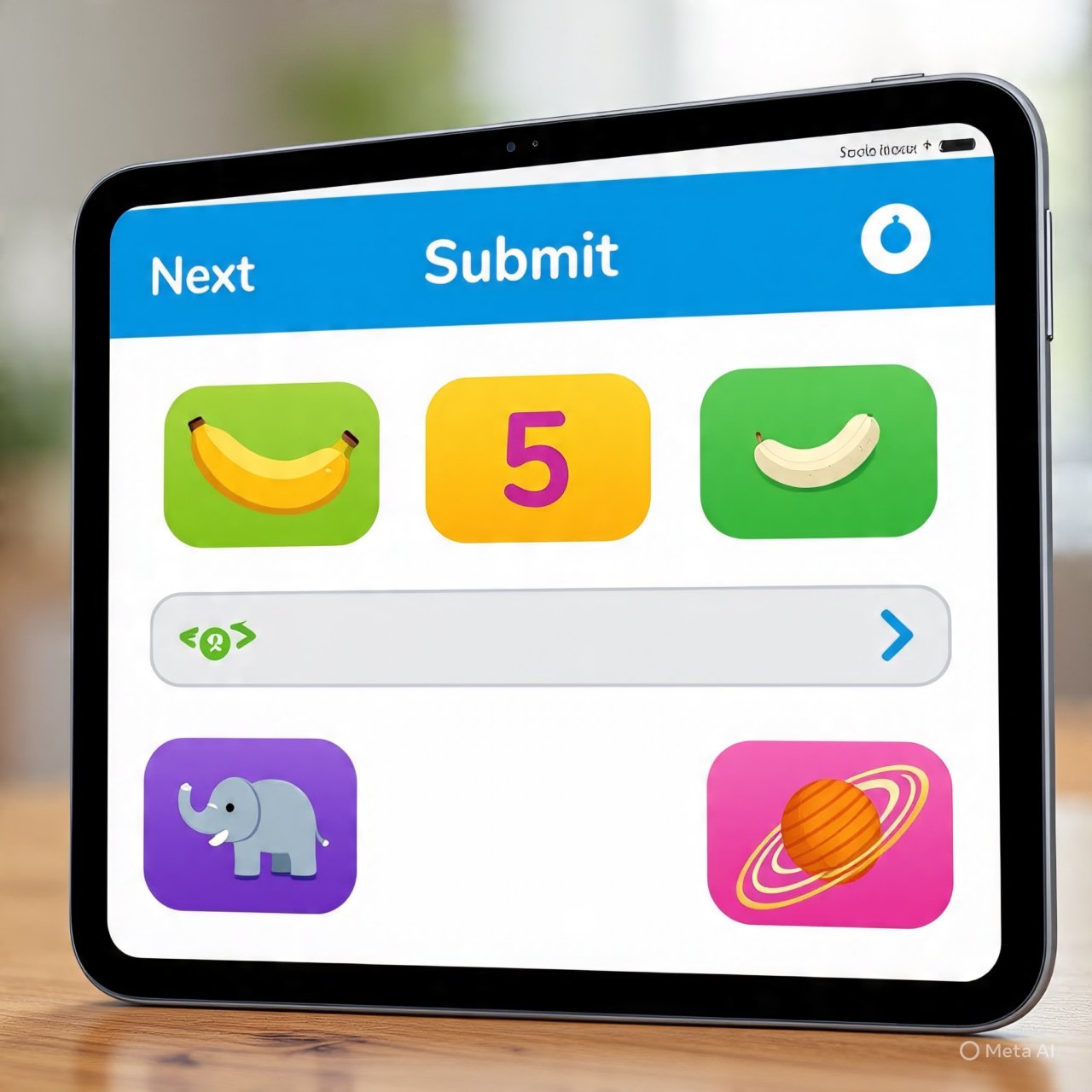
🧠 4. Give Screen Time a Purpose — Not Just Distraction
Before your child opens the tablet, ask:
“What will you use it for?”
- Learning a song?
- Solving a math game?
- Researching something fun?
This intentional approach helps them develop digital discipline. Even small rules like “no videos before homework” work wonders.
Let screen time kids build habits that help them — not hurt them.
🌳 5. Try Weekly ‘Digital Detox’ Days
Choose one day a week to go completely offline as a family.
Ideas for detox days:
- Backyard picnic
- No-screen scavenger hunt
- Family recipe cook-off
- Visit a local garden or lake
Use those hours to reset minds, reduce eye strain, and rebuild connection.
Screen time kids actually relax more when the detox is a shared family ritual — not a punishment.
- Use Screens to Record Memories, Not Just Consume Content
Not all screen time has to be consumption.
Use tech to create, document, and preserve:
Record a silly family vlog
Take a selfie every night and caption it together
Start a “Daily Laugh” digital scrapbook
Let screen time kids see technology as a tool to preserve joy, not just escape boredom.
How Focus Fun Makes Screen Time Smarter

With Focus Fun, you don’t have to fear screen time anymore.
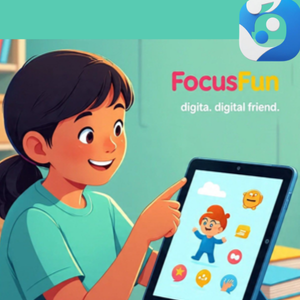
✔ Parent-approved brain games
✔ No ads, no overstimulation
✔ Track your child’s learning progress
✔ Perfect for 5–13 age group
Instead of banning screens, co-play and build smarter habits — one 10-minute game at a time.
“FocusFun helped us go from screen fights to screen fun. It’s our daily connection tool.”
— Amit, father of 2 kids
Ready to make your screen time kids more focused, curious, and connected?

Screens are part of life — there’s no escaping that. But how we use them makes all the difference.
With just a little intention, you can transform screen time kids into better learners, better talkers, and better family teammates.
Start today. Try one of these strategies tonight.
Download Focus Fun and co-play your first smart game — together.

Download Focus Fun Now
What Parents Are Saying:
“FocusFun gave us a way to say ‘yes’ to screen time without guilt. My daughter plays, learns, and even asks me to join!”
— Priya, parent of 8-year-old Tara
FAQ Frequently Asked Questions
How to tell if my child is addicted to mobile phones?
If your child gets irritated when asked to stop, constantly checks the screen, or chooses screens over people — these are signs. Try co-play apps like Focus Fun to gently shift habits toward learning.
What are the signs of screen time overload in kids?
Lack of focus, delayed speech, poor sleep, and emotional distance are common. These aren’t just tech issues — they’re connection gaps. Focus Fun brings bonding back through fun educational games.
Can screen time be turned into learning time?
Absolutely! When you co-watch shows or play brain games like Focus Fun, screens stop being distractions and become tools for curiosity and conversation.
Is banning screen time the only solution?
No. You don’t need to ban it — just guide it. Introduce tech routines, detox days, and purpose-driven apps like Focus Fun to build healthy digital discipline.
How can I reduce screen dependency in my child?
Start with small steps:
Set a tech-free hour daily
Replace passive content with co-play apps like Focus Fun
Model healthy habits yourself
What is a smart screen time habit?
Asking “What will you use it for?” before handing a screen. If the answer is learning, creating, or co-playing something like Focus Fun, it’s a smart habit.
How can I make screen time a family activity?
Use apps like Focus Fun that are designed for co-play. Try making a daily ritual — like 2 fun games before dinner. It creates shared joy, not isolation.
What if my child refuses to take screen breaks?
Make breaks fun: go on a walk, cook together, or do a screen-free scavenger hunt. Slowly replace the addiction with attention. Use Focus Fun as a reward tool, not just a screen filler.
Is screen time harming my child’s brain?
Excess passive use can affect attention and bonding. But interactive, purpose-driven use, like educational gaming with Focus Fun, can boost focus and memory.
Can one app really help with screen addiction?
Not alone — but the right app can change habits. Focus Fun makes screen time intentional, engaging, and connection-driven — exactly what your child needs.
